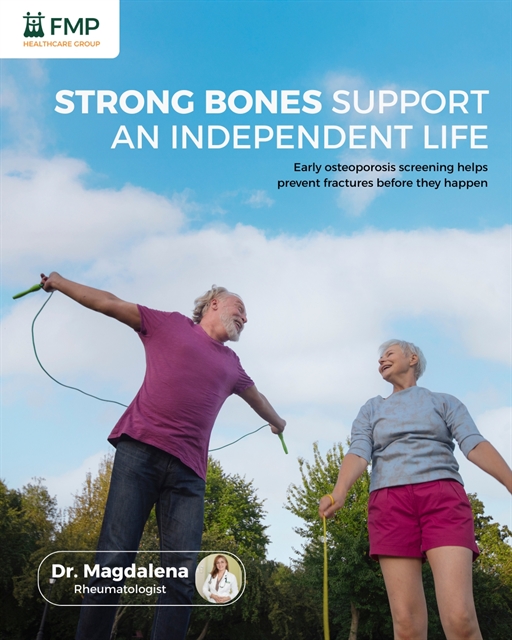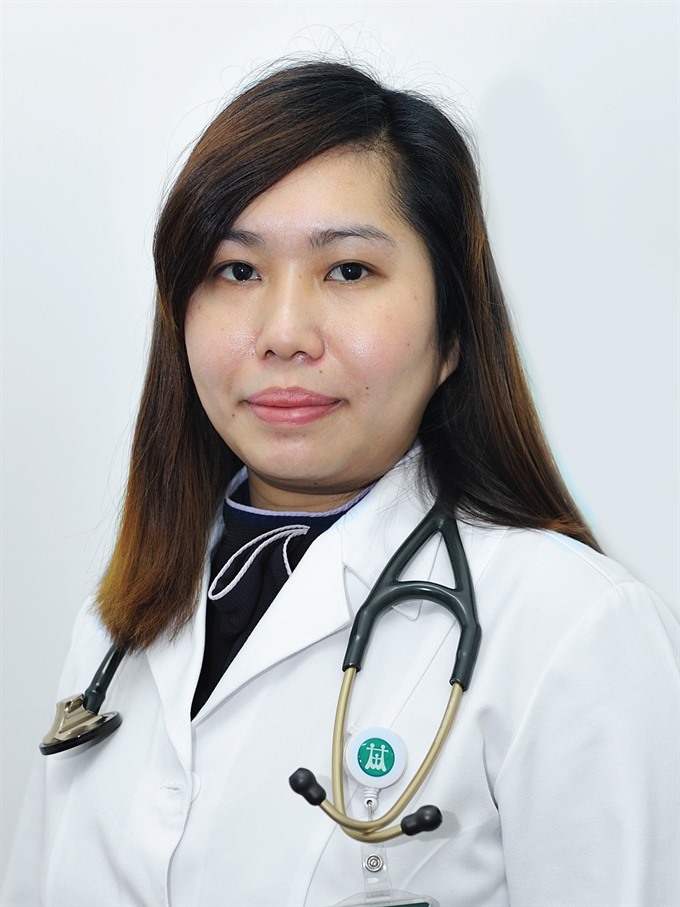 Life & Style
Life & Style

When counting sheep no longer works, there are other options to getting a good night’s sleep, says Dr. Catherine Gonzalez* of Family Medical Practice Hanoi.
 |
| Doctor Catherine Gonzalez.— Photo courtesy of Family Medical Practice |
When counting sheep no longer works, there are other options to getting a good night’s sleep, says Dr. Catherine Gonzalez* of Family Medical Practice Hanoi.
“The worst thing in the world is to try to sleep and not to,” said F. Scott Fitzgerald.
There are a number of simple things that anyone can do to help get a good night’s sleep. The first is to find out what you are actually doing when going to bed. Keeping a sleep diary can be very helpful in clarifying any patterns and habits that may be disrupting your sleeping.
Consider questions such as:
¨ What time do I go to bed and get up? Is it the same every day?
¨ Do I wake up during the night and why?
¨ What habits do I have around bedtime?
¨ What helps me go to sleep?
¨ What stops me going to sleep?
¨ Do I sleep during the day?
The answers to some of these questions may be useful in thinking about how to establish good sleep patterns.
You’ve heard of food and water hygiene, but did you know there is also such a thing as sleep hygiene. Sleep hygiene is all about the habits and practical things you can do to improve the quantity and quality of your sleep. Remember that with all habits, they take time to form and changes don’t happen overnight but within a week or two of trying establishing a new pattern most people will see some improvement.
Tips for good sleep hygiene
1. Routine – regular bed times, even on the weekends, can really help to establish and maintain habits. This includes doing the same things each night before you get into bed too.
2. Environment – a cool, quiet, comfortable place to sleep is very important. Particularly during summer in Hà Nội, when the temperatures reach up to 40 degrees at times, using your air-conditioner or fan wisely may help you sleep better and be able to cope with the heat during the day as well! Noise is a perennial problem in this city but a pair of earplugs may be a life-saver when your neighbours decide to renovate their bathroom at 3am.
3. Exclusivity – this means that your bed is only for sleeping (and other horizontal activities of the night). No working, reading or watching TV from bed! This helps your body to recognise that lying in bed equals sleep time not time to work on that last-minute presentation for the next day’s meeting.
4. There are some things to avoid to help you sleep better:
a. Alcohol – although you may feel that it helps you fall asleep, actually alcohol often causes disrupted sleep and wakes people during the night – best only in moderation.
b. Caffeine and other stimulants – We all love the sweet strong Vietnamese coffee with ice, but reconsider that last one of the day as caffeine blocks one of the hormones in your brain that tells you its time for bed. And just a quick reminder that coke, chocolate and green tea also have caffeine so stick to other herbal teas if you want a hot drink in the evening.
c. Meals – eating a heavy meal right before sleep can disrupt your sleep and exacerbate any reflux or indigestion you might have, so eat earlier in the evening, or have your main meal at lunch.
d. Stress – a big one and difficult to avoid! Try to stop work at least 30 minutes before you go to sleep and do something relaxing, a short walk or read a book. In fact any significantly stimulating activity such as strenuous exercise or watching a scary movie can impact your brain’s ability to unwind and get off to sleep.
e. Clock-watching – although it is so tempting to keep looking at the clock, it doesn’t help and usually makes you feel more frustrated at not being asleep. If you are not relaxed in bed then get up for 30 minutes and do some quiet activity in dim light before trying to go back to bed. Even lying in bed relaxed counts for something but tossing and turning will not help you get to sleep!
5. Some things that may help:
a. Early morning sunlight on your face – can help to reset the light/dark sensors of your brain so take your sunglasses off when going to work early in the morning.
b. Warm milk or herbal teas – yes, mother was right, a glass of warm milk before bed can really help. Chamomile or other herbal teas can also be effective.
c. Nap time – if you have to sleep during the day then take a nap early. Late afternoon naps will mean that your body is just not tired enough to get to sleep and can cause you to stay up late.
d. “Worry time” – if you are anxious about something and find yourself tossing and turning in bed worrying about it, then keep a notebook and pen beside the bed. You can write down any thoughts or concerns you might have in the book, which are then “safe” for you to remember tomorrow and you can tell yourself there is no need to keep thinking about them now. Schedule some “worry time” for yourself during the earlier part of the day to think about these things rather than just before going to bed.
e. Herbal remedies – there are some herbal remedies available in Việt Nam that some people find useful including Valerian, Melatonin and Rotundin. As with all herbal preparations, it is advisable to see your doctor to make sure these are safe for you to take. Herbal remedies are also a kind of medicine and may be contra-indicated in some people or interact with other medications you may be taking.
Some or all of these things will certainly help you to get a good night’s sleep, but again it takes time and practice just like any other skill. Perseverance is the key and the rewards are great!
However, if you have tried these all these things and are getting nowhere then please go and see a doctor to discuss the issues further. There are other medical problems that may be affecting your ability to sleep and some medications may also cause problems. Further investigations or treatments may be required, so don’t put it off.—Family Medical Practice Hanoi
* Doctor Catherine Gonzalez is a General Practitioner at Family Medical Practice Hanoi. For more advice on any medical topics, visit FMP Hanoi at 298 Kim Mã Street, Ba Đình. Tel: (04) 3843 0748. E: hanoi@vietnammedicalpractice.com.
FMP’s downtown Hồ Chí Minh City clinics are located at Diamond Plaza, 34 Lê Duẩn, District 1 and at 95 Thảo Điền Street, District 2. Tel: (08) 38227848. E: hcmc@vietnammedicalpractice.com. Emergency Medical Response: *9999. FMP Danang: 96-98 Nguyễn Văn Linh Street, Hải Châu District, Đà Nẵng. Tel: (511) 3582 699. E: danang@vietnammedicalpractice.com.
*The first of the two-part series was published on Monday, February 6.




